ENEMIES OF ROME 6.4 - ARMINIUS - Teutoburg
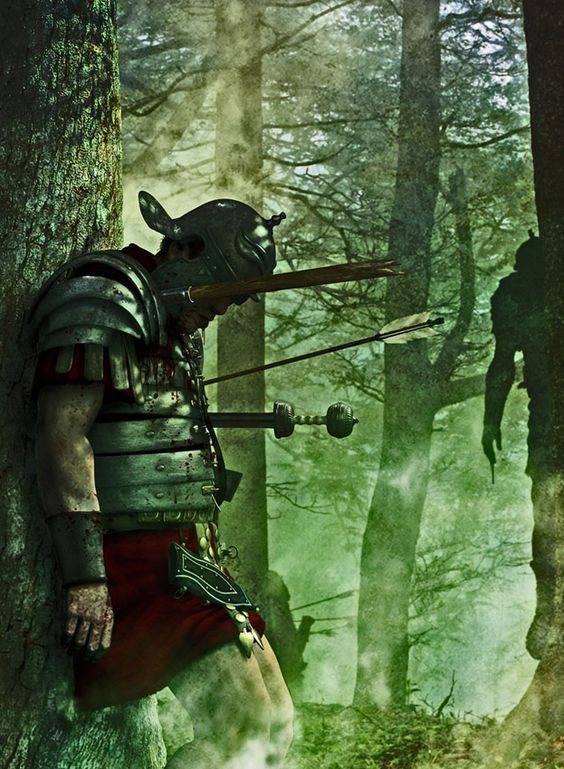
After touring the land of the Cherusci tribe of Arminius, in a display of martial prowess, Varus leads his three legions in direction of the Rhine, unaware of the dark motives of his pseudo-ally.
The Trap
It was the right moment for Arminius to strike: in Illyria, the Romans under Tiberius had just finished with the rebellion of the Pannonians and it was highly likely that they would turn their attention back to the Marcomanni in Bohemia and the Germanic tribes still restive to the authority of Rome. It was time to strike a blow which would wake up the Germans and unite them once and for all against Rome.
Therefore, being the ears and eyes of the governor of Germania, Arminius led the legions of Varus through dense and difficult terrain, on the one hand reassuring Varus that all was well, and on the other steering the troops readying themselves for an ambush on the unsuspecting Romans, because, as says Velleius Paterculus in his history:
Fate now dominated the plans of Varus and had blindfolded the eyes of his mind.
Since they did not expect any attack, these legions were stretched out in a long line, encumbered by a huge baggage trains and pack animals, thinking more about the warmth of home than about the cataclysm which was about to fall upon them.
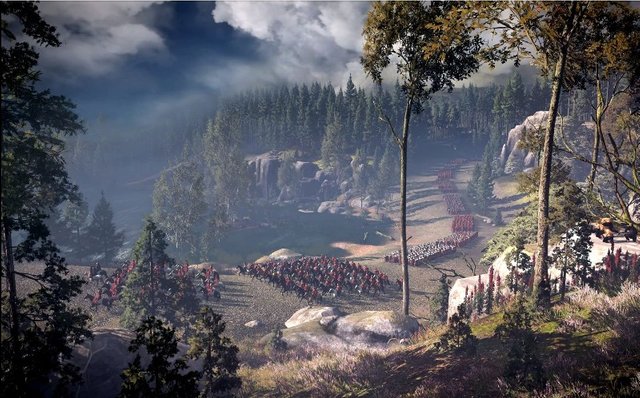
[Source]
The Fight
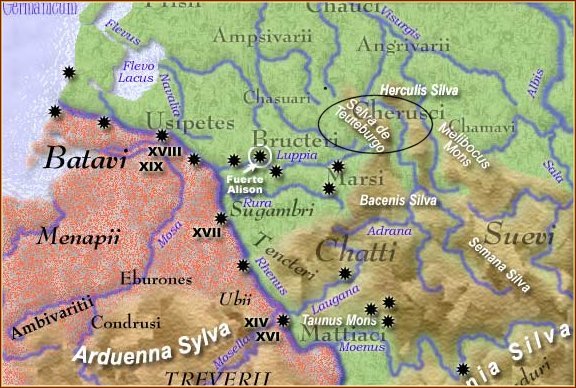
The mountains had an uneven surface broken by ravines, and the trees grew close together and very high. Hence the Romans, even before the enemy assailed them, were having a hard time of it felling trees, building roads, and bridging places that required it.
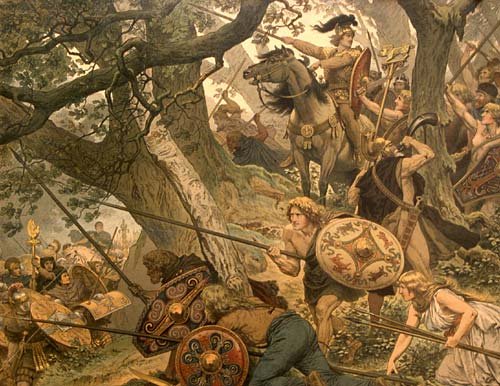
For the Romans were not proceeding in any regular order, but were mixed in helter-skelter with the waggons and the unarmed, and so, being unable to form readily anywhere in a body, and being fewer at every point than their assailants, they suffered greatly and could offer no resistance at all.
At least, the legions realized their situation and regrouped as best as they could in a defensive formation, which was enough to keep the attackers at bay and wait until the night in a makeshift camp, where the mood was probably somber all night long. Difficult to imagine that anyone slept much that night, surroundered by the tribes which had smelled blood and were waiting dawn to finish the job.
The flight
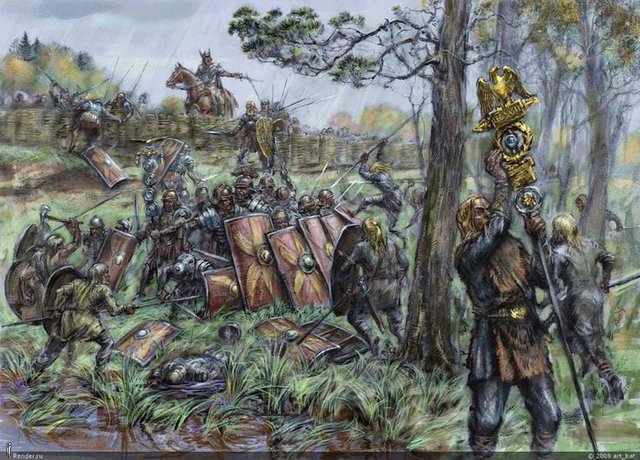
[Source]
In the morning of the second day of the battle, seeing the hopelessness of the situation if they stayed on the same spot, Varus and his legions decided to make a run for it:
they either burned or abandoned most of their waggons and everything else that was not absolutely necessary to them. The next day they advanced in a little better order, and even reached open country, though they did not get off without loss.
It must have been a running battle, the legions trying to cover the maximum distance to reach the safety of a plain where they could fight the tribes in a manner they were more accustomed to, but the tribes shadowing them every step of the way and harassing them without pity:
Upon setting out from there they plunged into the woods again, where they defended themselves against their assailants, but suffered their heaviest losses while doing so.
They kept going, moved by a mix of hopelessness, rage and the own impetus of an army on the run, not even setting camp for the second night of the battle, but eventually, at dawn, on the third day, a storm broke out and stopped them right in their track:
again a heavy downpour and violent wind assailed them, preventing them from going forward and even from standing securely, and moreover depriving them of the use of their weapons.
The massacre
The tribes did not lose time. Like sharks, many tribes are heard about what was happening. Some wanted the plunder, some just wanted to show off their allegiance to Arminius and not be accused of standing still and being friendly to the Romans. But what is clear is that while the ranks of the Romans were thinning out, the Germans were getting stronger and bolder.
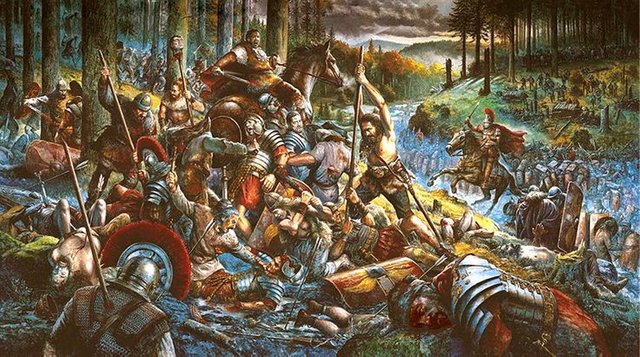
[Source]
They encircled easily the remnants of the legions, wore down by exhaustion and injuries, and massacred them methodically, so much so that the officers were pushed towards the last resort:
Varus, therefore, and all the more prominent officers, fearing that they should either be captured alive or be killed by their bitterest foes (for they had already been wounded), made bold to do a thing that was terrible yet unavoidable: they took their own lives.
The suicide of Varus. [Source]
In three days, three legions of Rome had vanished from the face of the earth, and the whole German project of the Empire was in tatters.
TO BE CONTINUED... Previous episodes:
ENEMIES OF ROME 6.3 - ARMINIUS - The Plot Thickens
ENEMIES OF ROME 6.2 - ARMINIUS - Pax Romana
ENEMIES OF ROME 6.1 - ARMINIUS - Magna Germania
Sources:
http://www.perseus.tufts.edu/hopper/text?doc=Perseus%3Atext%3A1999.02.0078%3Abook%3D1%3Achapter%3D54 http://sourcebooks.fordham.edu/halsall/basis/tacitus-germanygord.asphttps://en.wikipedia.org/wiki/Cimbrihttp://www.historyfiles.co.uk/KingListsEurope/BarbarianTeutones.htm
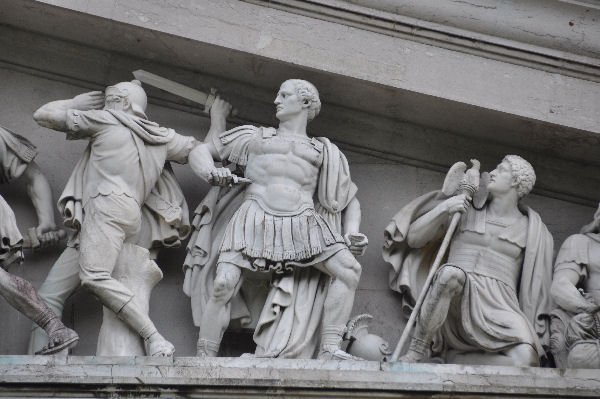
You know the Germans call him Hermann :), they build a large statue during the Germanic years of last century.
Yes! Hermann is probably his true Germanic name, which was "Romanized" as Arminius during his time as hostage of Rome. And i see which statue you are talking about (i'll talk about that in the next episode)! There is even a copy built by German immigrants in USA: https://en.wikipedia.org/wiki/Hermann_Heights_Monument
I was wrong about the age, even earlier.
You could do a posting about our local hero Ambiorix, The old Belgians and Dutch, the horseman recruited into the Roman armies, interesting posts.
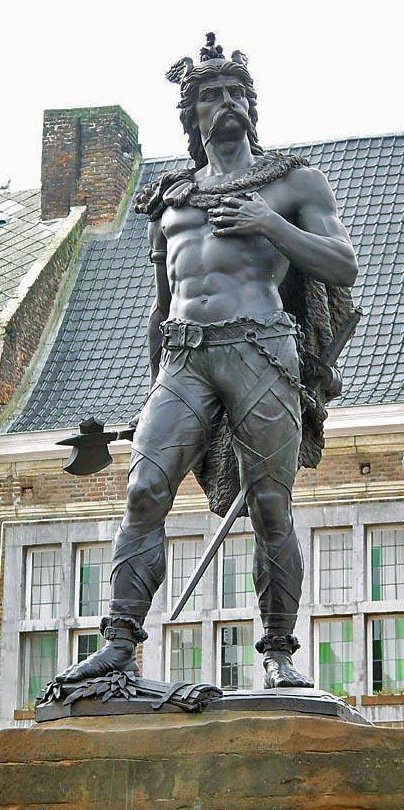
I watched a really good video on this...Arminius was a military genius! Upvoted & Followed!
Thanks!